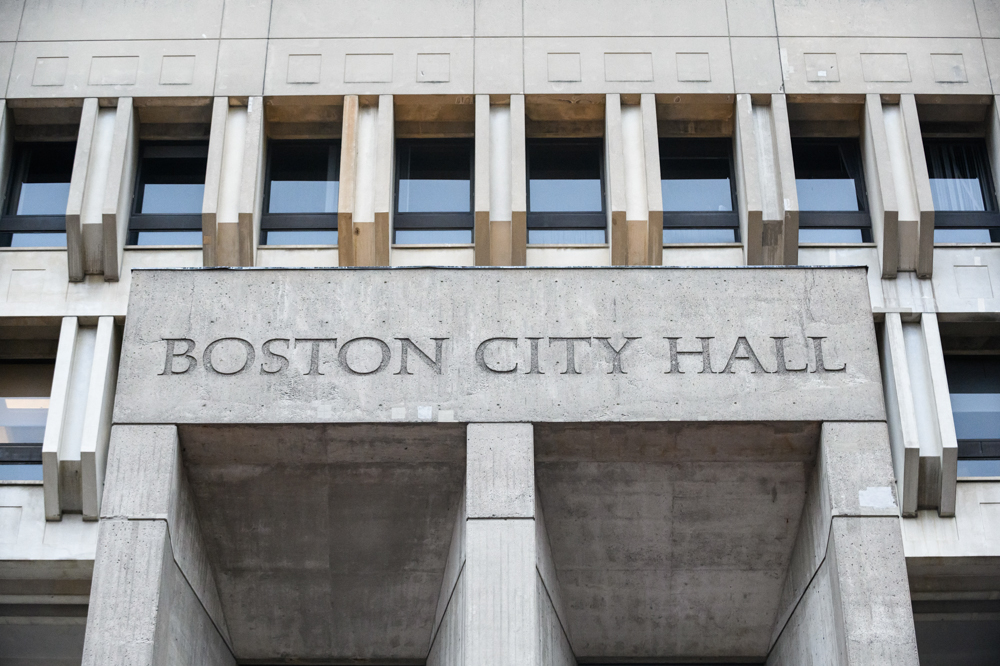Boston City Council Ways and Means Committee held a hearing on docket #1002, the creation of a Boston Development Fund in the planning department, on Wednesday at City Hall Plaza.
Councilors Brian Worrell and Julia Mejia co-sponsored the initiative and were later joined by Councilors Erin Murphy and Edward Flynn as well as Council President Ruthzee Louijeune.
The hearing was a continuation of a discussion regarding a $150 million development fund to increase affordable homeownership in Boston, proposed by Worrell in June.
Boston Mayor Michelle Wu also announced a $100 million proposal in September to expand affordable housing.

Worrell said his proposal is not intended to compete with Wu’s proposal but rather complement it.
Worrell said the Boston Development Fund “should be more than $100 million” with homeownership units, as they are “the most effective tools to close the wealth gap” and “stop displacement.”
“By investing in home ownership, we would ultimately be generating wealth for the people,” Worrel said. “In order to overcome those past harms, we now need intentionality in our policies and expenditures.”
Worrell said the proposal aims to help the city overcome the effects of redlining and increase the rate of home ownership.
“This is about keeping young people here from college to retirement, giving every Bostonian an opportunity to own in the city they grew up in,” Worrell said.
During the meeting, Murphy discussed the impact of the Boston housing crisis on young adults. Murphy said she has witnessed the problem first-hand — her son struggled to afford rent in Boston.
“[I look] forward to this conversation to learn more about how we can help my son and others like him across the city,” Murphy said.
Lucas Munson, senior research analyst at Boston Indicators, a research center at the Boston Foundation focused on improving the well-being of Greater Boston residents, said home and rent prices have been “increasing for a long time.”
However, Munson said since the pandemic, prices are increasing at “a faster rate” with “no end in sight.”
Munson said 50% of renters in the region are considered “cost burden,” meaning they spend more than 30% of their income on housing.
“There are also large racial disparities within this group,” Munson said. “Prices continue to escalate with kind of no end in sight.”
Hillary Pizer, director of organizing and policy for the Massachusetts Affordable Homeownership Alliance, said it is important the city develops new solutions to the housing problem.
“When we are talking about thinking outside the box, the box is absolutely a rental box,” Pizer said. “We’re trying to develop new solutions that end up, after 30 years, with the people in the community having those assets, and the only way to do that is through home ownership.”
Greg Vasil, CEO of the Greater Boston Real Estate Board, also emphasized the importance of homeownership.
Vasil said homeowners feel “rooted in a community,” take better care of their property and have the opportunity to “build generational wealth.”
“Ownership is vital for the City of Boston,” Vasil said. “If you don’t give people the chance to own something, they won’t aspire to anything.”













































































































Jaylyne • Nov 15, 2024 at 2:33 pm
The only way for Boston to become affordable again is to improve the economy for middle incomers and city workers. As long as tech, biotechnology and life sciences keep bringing in transplants with 6 figures or more, then Boston will never appeal to any average Joe that wants to live here. The other issue are the awful high taxes, too many regulations and terrible bike lanes including the MBTA that never has worked since it opened over 100 years ago. Sadly the Democrats won’t do what we ask them to do.